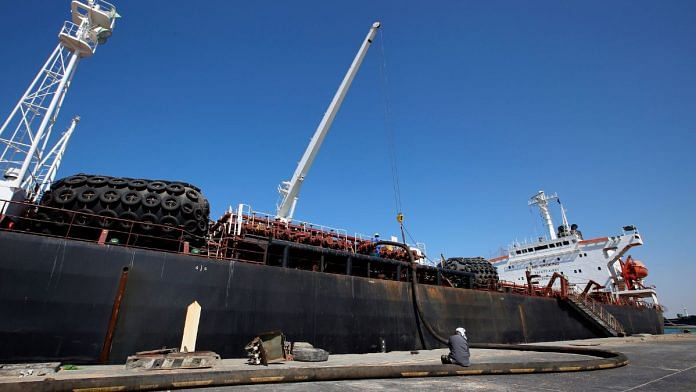New Delhi: Continued attacks by Houthis on ships traversing the Red Sea could mean ships carrying Russian oil to India and Indian petroleum products to Europe could see dramatically longer travel times as they seek alternative routes, analysts say. This delay in oil supplies to India could force it to increasingly depend on other sources of oil such as the Middle East, they add.
In the aftermath of the Israeli offensive on Palestine, the Yemen-based Houthi group has been attacking ships travelling on the Red Sea, a vital waterbody for entry to and exit from the Suez Canal, a crucial link drastically shortening the shipping distance between Europe and Asia.
Without access to the Suez Canal, ships would have to travel around the entirety of the African continent via the Cape of Good Hope at its bottom tip. So far, several major shipping companies have paused their Red Sea journeys, with analysts saying this number is expected to grow if the attacks persist.
According to the US Energy Information Administration (EIA), total oil shipments via the Red Sea routes accounted for about 12 percent of total seaborne-traded oil in the first half of 2023.
If ships begin routing their travel around the Cape of Good Hope, the travel time from the Russian Baltics to India could increase from 27 days to 44 days, a 63 percent increase, Jay Maroo, head of market intelligence & analysis (Middle East and North Africa) for freight analytics firm Vortexa, said in a note.
He added that shipping times from India to Europe could increase to 38 days from 24 days — a 58 percent increase.
This is a significant risk for India, according to Vibhuti Garg, South Asia director at the Institute for Energy Economics and Financial Analysis.
“Before the Russia-Ukraine war, Russia was not a big supplier of oil to India and things could have been managed,” Garg explained. “But since then, they have become one of our largest oil suppliers and sell to us at a discount. That could now take a hit.”
The issue in India is that the country is overwhelmingly dependent on imported oil, to the tune of 80-85 percent of our requirement. In addition, Garg, says the fact that we don’t have enough storage capacity means that delays in shipments is a bigger problem.
“Storage is a big problem in India,” she said. “We don’t store as much oil, and so we need a continuous supply. We can cover for a few days, but if the travel times go up substantially, then we would have to look at other sources. The Middle East would be the best option for us to fill that gap.”
ThePrint reached the Ministry of Petroleum and Natural Gas via email and calls. This report will be updated if and when a response is received.
The US EIA has said that southbound shipments (towards the Middle East and Asia) through the Suez Canal rose significantly between 2021 and 2023, due in large part to the Western sanctions on Russia’s oil exports.
“Oil exports from Russia accounted for 74 percent of Suez southbound oil traffic in the first half of 2023, up from 30 percent in 2021,” the agency said in a 4 December report. “Most of those export volumes were destined for India and China, which imported mostly crude oil from Russia.”
Russia reportedly contributed 40 percent of India’s oil imports in the first half of this financial year (April to September 2023), the highest among countries exporting oil to India.
(Edited by Zinnia Ray Chaudhuri)
Also read: Supply of cheap oil from Russia could be at risk as India searches for payment options



